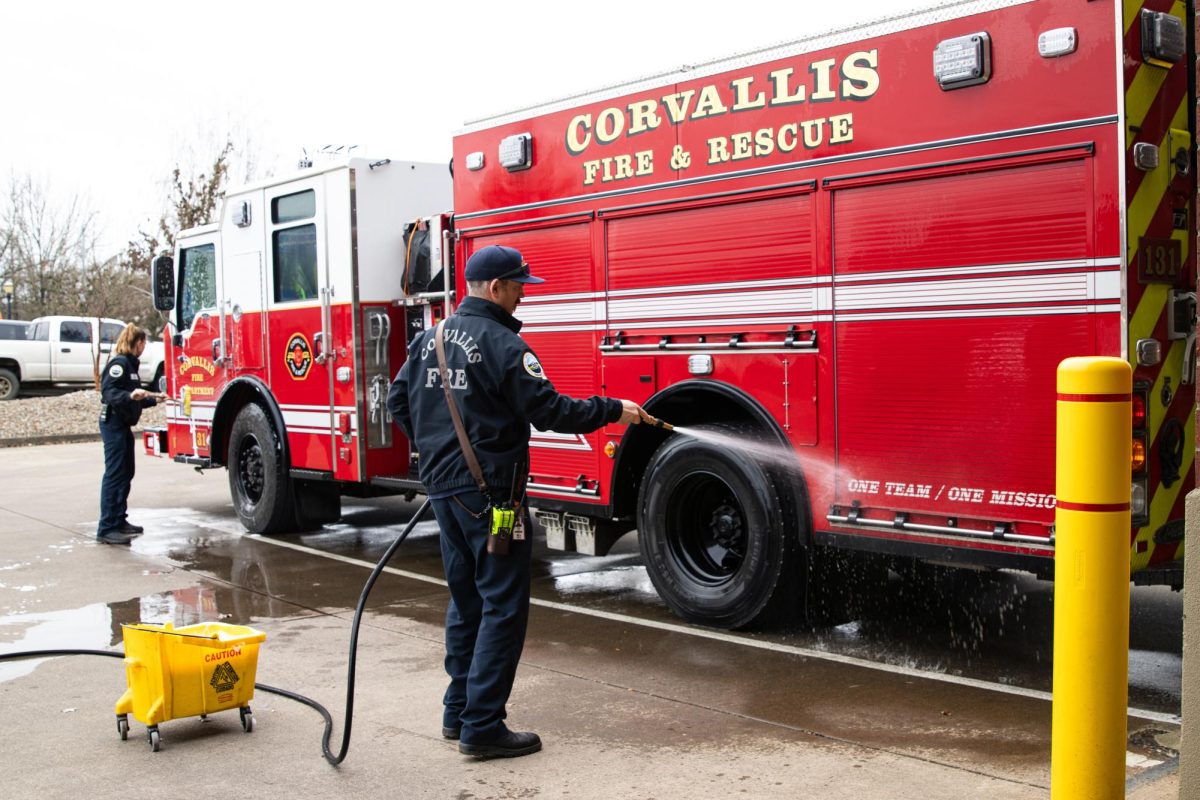Passionate journalism still essential in society
January 29, 2016
“There’s no money in it.”
“It’s a tough field to get into.”
“Have you considered engineering?”
These are the most frequent comments I heard after telling some close friends and family members that I wanted to be a journalist.
And honestly, I don’t blame them for saying any of this. People traditionally go back to school to make more money, expand their opportunities and look into fields that appear to be booming in the moment.
The future of journalism continues to remain uncertain overall, but even the past four years have been more optimistic than I first witnessed.
It helps that I started out with an optimistic adviser who continues to lead an optimistic program, but there has been more to it than that.
Hundreds of journalists and students gathered at the University of Oregon’s Turnbull center in Portland last Saturday for workshops on data journalism, political advertising effects and other hot topics related to the continued development of media across the world.
The keynote event of the day occurred between 2 and 4 p.m. when journalists who reported on the September 2015 Umpqua Community College shooting gathered to discuss their coverage of the events that transpired. Though the primary panel consisted of reporters from the Roseburg News-Review, the Eugene Register-Guard, The Oregonian, the Portland Mercury and KOIN, other journalists in the audience participated in the conversations.
Some discussed what it was like rushing to the scene not knowing what to expect. Others discussed the aftermath and follow-up reports. One freelance reporter asked colleagues in the room if they faced opposition when trying to cover certain events.
In her case, mourners at the campus told her she was being “disrespectful.”
Her words to describe the group she photographed? “Beautiful.” It was not her intention to intrude so much as it was to spread word of the event’s impact.
Fellow reporters reminded one another that, regardless of the objectivity that often goes into breaking reports, it’s fine to take a moment and let your own emotions process.
It’s healthy, in fact.
Reporters continue to process so much, so often with so many new tools.
It’s amazing in its own way that any of us would still be crazy enough to do this.
But we are.
When I worked as an intern for the Klamath Falls Herald and News, one colleague told me to “Keep your optimism in journalism. That’s good for all of us.”
The advent of what we know as “citizen journalism” has spawned more questions about journalism and shifting media than ever before.
We’re still needed. Only, the means of how we report continue to shift.
Journalism especially remains important in a world more connected than ever before.
If the Internet represented the science of connecting—who communicates, where they interact and how they connect—then I would say journalism represents the art of connecting. On that level, the craft of reporting, interviewing and storytelling helps support why we connect. Though many media outlets continue to struggle as they redefine their place in society, how does one explain how the masses continue to interact with the news?
My favorite misconception on the role of modern journalism is as follows: “But anything could pass for news these days. Someone could just blog about it.”
That’s exactly why we need more trained professionals in these fields: We need folks on the front lines who can differentiate between valid and invalid information.
It’s fine if someone can’t tell the difference, but unacceptable if nobody can.
On that note, I would like to address the usual “don’t get into journalism” blockers that assume you’re not in it for the interest.
First, the “there’s no money in it” proclamation, which I hear more often than the others.
My personal preference is to be someone who makes a living with skills and crafts that help to benefit others around me. Nobody gets into this business under the impression that they’re going to become rich.
The Poynter Institute published an article in 2013 titled “Why an ‘average’ journalism grad’s salary might not be an average where you work,” which outlined that the usual assumed $40,000 a year average could vary based on state. Supposedly a journalist in the D.C. area could make as much as $70,000, while a reporter from Nebraska might pull in closer to $20,000.
If money was my primary argument toward returning to school, I could still say “mission accomplished.” I’m lucky if I made around $14,000 a year at my previous service jobs.
Second, “it’s a tough field to get into,” which also ties into “have you considered engineering?”
Yeah, it’s definitely tough and highly competitive. But like the field of journalism, many STEM fields (even on a college completion level) can be just as competitive in their own way for a reason: We need people who love it, not people who feel obligated to do it for the money because they “have to.”
I don’t know about you but I’d feel much more confident riding, driving over or utilizing a structure that someone enjoyed creating.
There’s a good chance it’s less likely to collapse or blow up in your face.
The opinions expressed in Bassinger’s column do not necessarily reflect those of The Daily Barometer Staff.
baro.forum@oregonstate.edu


















































































![Newspaper clipping from February 25, 1970 in the Daily Barometer showing an article written by Bob Allen, past Barometer Editor. This article was written to spotlight both the student body’s lack of participation with student government at the time in conjunction with their class representatives response. [It’s important to note ASOSU was not structured identically to today’s standards, likely having a president on behalf of each class work together as one entity as opposed to one president representing all classes.]](https://dailybaro.orangemedianetwork.com/wp-content/uploads/2025/03/Screenshot-2025-03-12-1.00.42-PM-e1741811160853.png)























